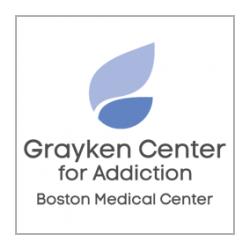Supplement published in Pediatrics highlights evidence on how best to address this unique age group

Credit: BMC
Boston – A national group of pediatric addiction medicine experts have released newly-established principles of care for young adults with substance use disorder. Led by the Grayken Center for Addiction at Boston Medical Center, the collection of peer-reviewed papers was developed to guide providers on how to treat young adults with substance use disorder given their age-specific needs, as well as elevate national discussions on addressing these challenges more systematically.
Published in Pediatrics, the 11-paper supplement is the result of a convening of national experts in the treatment of young adults to determine the most important principles to address when caring for this unique population of patients with substance use disorder. Consensus was reached that each of the six principles of care “convey a commitment to compassion, therapeutic optimism and social justice.”
“Our goal in publishing this supplement is to bring attention to the unique needs and challenges faced by this age group, and highlight the opportunities to best address these needs in order to lead to improved outcomes,” said Michael Silverstein, MD, associate chief medical officer for research and population health at Boston Medical Center who served as first and co-author on several papers in the supplement and played a key role in the convening. “We hope that this will start the much-needed dialogue within the medical community about young adult addiction medicine and lead to the development of recommendations and treatment guidelines specific to the needs of these patients.”
One of the age groups most heavily impacted by substance use disorders are young adults between the ages of 18 and 25. According to a Substance Abuse and Mental Health Administration report in 2016, 23 percent of young adults reported using illicit drugs, most commonly marijuana and prescription drugs, while two of three adults in treatment for opioid use disorder report that they first tried drugs before the age of 25. Yet, studies have shown that very few young adults identified as needing treatment for a substance use disorder receive it – one in 13 – and of those few in treatment, they are less likely to remain engaged in treatment than older adults.
“There are significant cognitive and developmental changes taking place during young adulthood that need to be considered when determining how best to address substance use disorder in this unique patient population,” said Scott Hadland, MD, MPH, MS, pediatric addiction specialist at the Grayken Center who served as first and co-author on several of the papers. “We must incorporate, at every opportunity, a way to reduce harm and consequences of use, and address any compounding health conditions that factor into their ability to realize recovery.”
Below is the list of papers about the six principles of care:
- 1. Evidence-based Substance Use Treatment of Young Adults with Substance Use Disorders
2. Engaging the Family in the Care of Young Adults With Substance Use Disorders
3. Support Services for Young Adults With Substance Use Disorders
4. Principles of Care for Young Adults With Co-Occurring Psychiatric and Substance Use Disorders
5. Principles of Harm Reduction for Young People Who Use Drugs
6. The Justice System and Young Adults With Substance Use Disorders
The supplement also includes three perspectives about these principles of care, addressing issues such as racial trauma and screening and prevention, with insight from the authors about how best to address gaps in treatment and care at both the system and policy level.
###
Michael Botticelli, former executive director of the Grayken Center for Addiction at Boston Medical Center, and Miriam Komaromy, MD, medical director of the Grayken Center for Addiction at Boston Medical Center, were integral in the development and publication of this supplement. More than sixty individuals contributed to the convening and resulting supplement, including experts from the Grayken Center at Boston Medical Center and Boston University; Boston Children’s Hospital; Boston Healthcare for the Homeless; Brown University School of Public Health; Cambridge Health Alliance; City of Boston – Mayor’s Office of Recovery Services; Columbia University; Johns Hopkins University School of Medicine; Massachusetts General Hospital; Massachusetts State Senator Jason Lewis; National Institute on Drug Abuse; Tufts Medical Center; Tufts University School of Medicine; University of Massachusetts Medical School; University of Texas at Austin; and several other hospitals, non-profits and recovery support programs.
About Boston Medical Center
Boston Medical Center (BMC) is a private, not-for-profit, 514-bed, academic medical center that is the primary teaching affiliate of Boston University School of Medicine. It is the largest and busiest provider of trauma and emergency services in New England. BMC offers specialized care for complex health problems and is a leading research institution, receiving more than $166 million in sponsored research funding in fiscal year 2019. It is the 13th largest funding recipient in the U.S. from the National Institutes of Health among independent hospitals. In 1997, BMC founded Boston Medical Center Health Plan, Inc., now one of the top ranked Medicaid MCOs in the country, as a non-profit managed care organization. Boston Medical Center and Boston University School of Medicine are partners in Boston HealthNet – 12 community health centers focused on providing exceptional health care to residents of Boston. For more information, please visit http://www.
Media Contact
Jenny Eriksen Leary
[email protected]
Original Source
https:/




